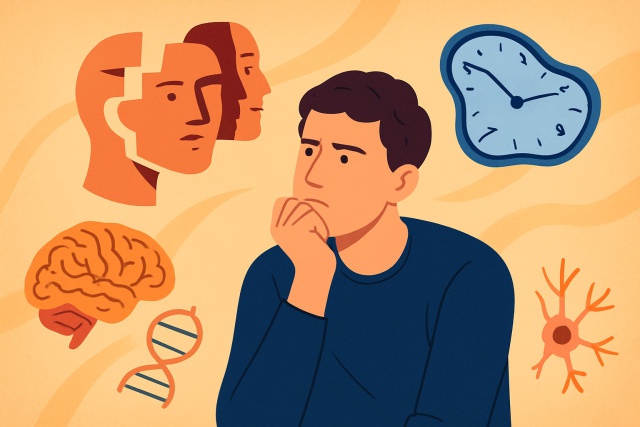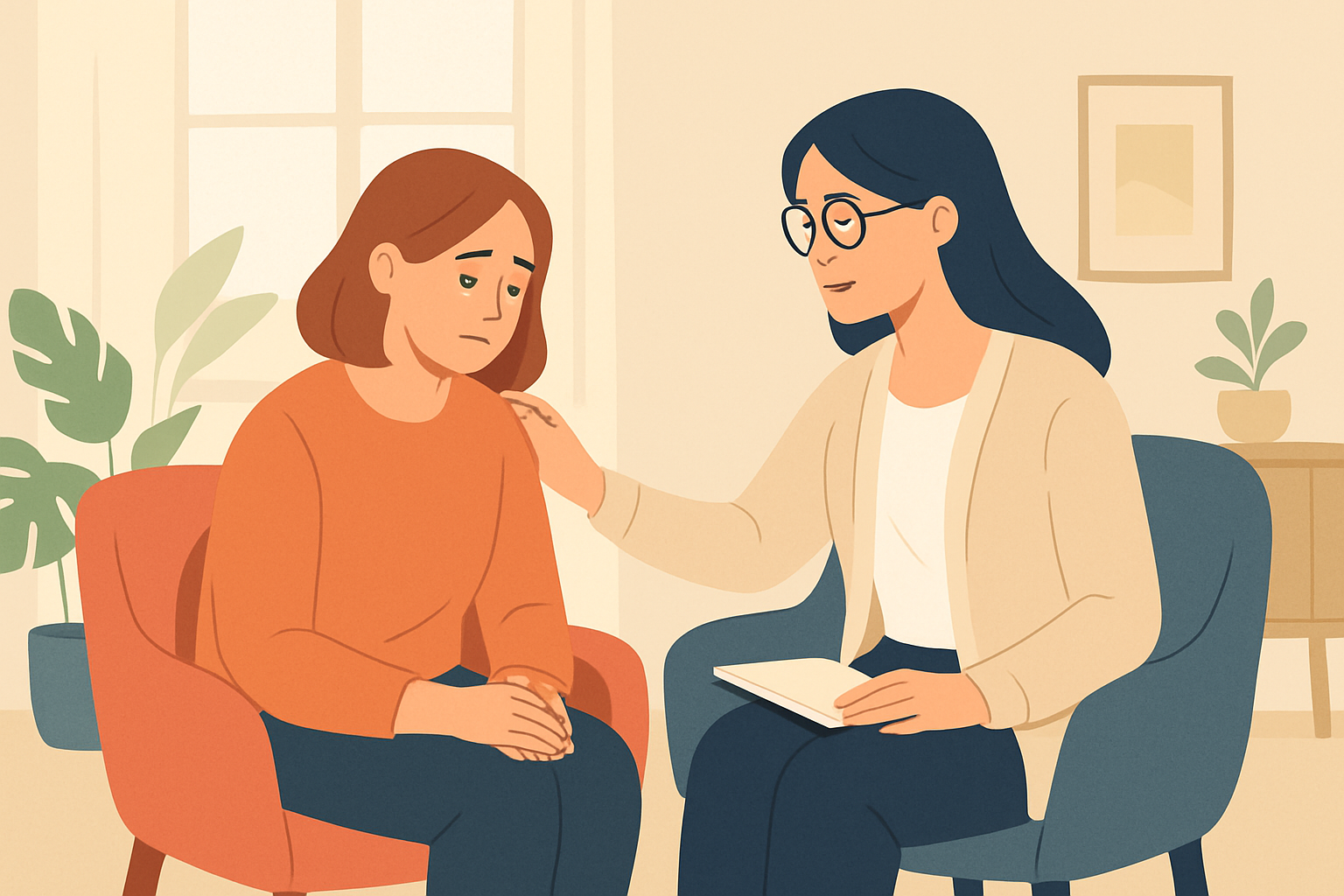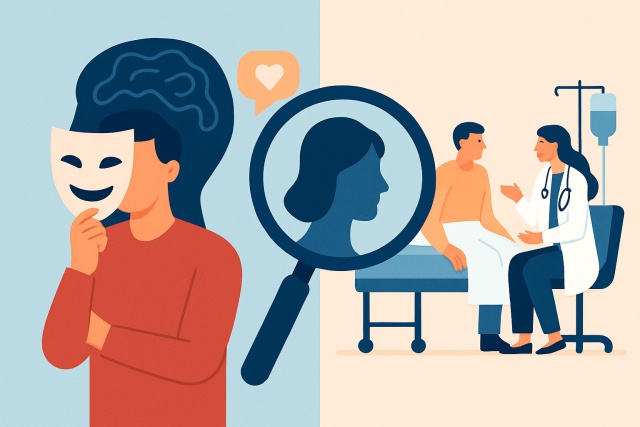
Rare Mental Disorders Most People Never Hear About
Discover rare mental disorders that affect few but have profound impacts, covering symptoms, diagnos...
Brief Psychotic Disorder (BPD) can be quite unsettling not just for those experiencing it but also for their loved ones who often feel caught off guard. Catching early signs like sudden confusion or hallucinations is absolutely key.
This article takes a no-nonsense down-to-earth look at Brief Psychotic Disorder and makes it easier to wrap your head around by spotlighting the key symptoms to watch for. Our goal is to clear up confusion that often surrounds this condition by turning clinical jargon into everyday language and including relatable examples.
Brief Psychotic Disorder is a temporary mental health hiccup marked by a sudden burst of psychotic symptoms like delusions or hallucinations popping up out of the blue. It usually hangs around for less than a month and often shows up right after a seriously stressful event. Think of it as the mind’s way of throwing a quick intense tantrum. It’s like a brief mental crisis that swoops in fast but thankfully tends to clear up within a few weeks.
Brief Psychotic Disorder often pops up from a mix of different triggers. These might be anything from intense emotional stress or traumatic events to substance use or withdrawal, certain medical conditions, and significant hormonal shifts like those after childbirth.
Brief Psychotic Disorder hits the scene pretty suddenly and brings a handful of telling symptoms. We are talking about unusual beliefs or delusions that might seem out of the blue. There are hallucinations where a person perceives things that simply aren’t there, speech that can come across as unclear or confused, and behavior that feels disorganized or unusual.
Imagine someone suddenly becoming absolutely sure a co-worker is spying on them. They hear voices that chatter about them behind their back. They start to speak in jumbled sentences or behave in ways that leave even their closest friends and family scratching their heads in confusion.
Experiencing a brief psychotic episode can feel like being thrown into a bewildering whirlwind where the ground shifts beneath your feet and nothing makes much sense for a while. It really calls for a good dose of patience and a whole lot of understanding to be there for someone navigating this tough and unsettling time.
Brief Psychotic Disorder shares some symptoms with other mental health conditions like schizophrenia or bipolar disorder with psychotic features which can make it tricky to spot right away. What sets it apart is how suddenly it shows up and how short-lived it tends to be. Most people bounce back fully in the end. Picking up on these nuances is key for healthcare providers aiming to nail the diagnosis and provide the right care.
| Condition | Symptom Duration | Onset Speed | Symptom Types | Recovery Pattern |
|---|---|---|---|---|
| Brief Psychotic Disorder | Under 1 month | Sudden (hours to days) | Delusions, hallucinations, disorganized behavior | Full recovery is generally expected, often quite quickly |
| Schizophrenia | Several months to years | Gradual (over months) | Persistent delusions, hallucinations, negative symptoms | Chronic condition that usually requires ongoing management—no quick fixes here |
| Bipolar Disorder with Psychotic Features | Several weeks to months | Variable | Mood episodes accompanied by psychosis, disorganized thoughts | Recovery tends to vary; episodes often come and go like an unwelcome guest |
| Schizoaffective Disorder | Several months to years | Can be gradual or sudden | Symptoms combining mood disorder and schizophrenia | Chronic condition; long-term treatment is usually necessary, so it’s a marathon, not a sprint |
You may notice someone suddenly getting confused or hearing voices and clinging to beliefs that don’t line up with reality or acting completely out of character. Jumping in with support sooner rather than later can make a world of difference. Leaving psychosis unchecked usually spells trouble and often leads to risky scenarios and a much longer haul to get back on track.
Treatment for Brief Psychotic Disorder usually involves a blend of medication and therapy plus good old-fashioned social support. When given the right care most individuals bounce back completely within a few weeks. The whole point is to dial down those overwhelming symptoms.
When you are there for family and friends, patience truly becomes your best friend along with the art of holding back snap judgments.

There are quite a few myths swirling around Brief Psychotic Disorder, like it inevitably turning into a long-term problem or the idea that experiencing psychosis somehow means someone is weak. Many people go through just one episode and bounce back fully, often surprising even themselves. Psychosis is a medical condition—nothing more or less—just like catching the flu.
A brief psychotic episode usually lasts less than a month and often clears up within a few weeks. Sometimes it resolves faster if caught early. Symptoms can appear suddenly and fade quickly, especially with the right treatment. Most people fully recover without lasting effects, which is reassuring compared to chronic conditions like schizophrenia.
Severe emotional stress such as trauma, grief or major life changes can trigger Brief Psychotic Disorder, especially in those who are more vulnerable. However, stress is rarely the only factor. Other causes like substance use, medical issues or hormonal changes like postpartum often contribute. While stress is usually the main trigger, it seldom acts alone.
First try to stay calm and ensure the person is safe. Avoid arguing about delusions or hallucinations because that will not help. Instead seek professional assistance as soon as possible. Contacting a mental health provider, a crisis line or going to the ER if there is any risk of harm can make a big difference. Starting therapy or medication early often speeds up recovery and prevents worsening.
Not at all. Even though both involve psychosis, Brief Psychotic Disorder is a short-term condition that usually lasts under a month. Most people make a full recovery. Schizophrenia is a long-term illness with ongoing symptoms that usually require continuous treatment. Think of Brief Psychotic Disorder as a sudden storm following stress or trauma while schizophrenia develops more gradually over time.
Antipsychotics often help control acute symptoms but long-term medication is not always necessary. Therapy like CBT and a strong support system also play important roles. Treatment is like tailoring a suit; it needs to fit the individual. Some people do well with therapy alone, especially if stressors are addressed early before the condition worsens.
It is possible but not guaranteed. Managing stress, avoiding substances that might trigger symptoms and having solid support networks reduce the chances. Fortunately most people experience only one episode, especially when treatment is received promptly. Regular follow-ups with a mental health professional are a good way to monitor ongoing wellbeing.

Discover rare mental disorders that affect few but have profound impacts, covering symptoms, diagnos...

Learn to differentiate Narcissistic Personality Disorder from Borderline Personality Disorder by und...

Language processing disorder impacts how children understand and use language. Learn to recognize ea...

Discover how malingering and factitious disorder differ fundamentally in motivation and clinical pre...